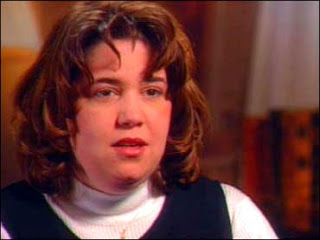
Yesterday was our mid-summer picture/schedule pick-up day and I volunteered to work the ID picture line from 8:00 – 10:00, the first shift. The students enter the gym lobby and pick up their class schedule, book list, student handbook, and several handouts. They are then directed to tables in the main gym where they receive a bar-coded form with their name and student ID number. They then stand in one of 5 picture lines to get their ID photo taken.
At the front of the line, the photographer puts their bar-coded form into a slot in the camera and takes their picture. I am not sure how it works, but I think the camera reads their bar-code and stores their photo digitally in a computer. Later the picture can be brought up with the name and year of the student. In the “power school” program each teacher uses to take attendance and record grades during the year, the teacher can call up a picture of the student with their information. ID cards are produced later and distributed the first day of school during homeroom. Teachers and other staff also have their pictures taken, but their forms say “Faculty/Staff” instead of “Student.” Each student, faculty, and staff member has an account with “meal time” that is used to pay for their food in the cafeteria. In fact, the cafeteria does not accept cash for anything.
If a student loses their ID during the school year they can go to the student government office and have a new one printed out on the spot—for a fee of $5.00. These same pictures are used in the yearbook for the freshmen, sophomores, and juniors. The seniors have an ID photo taken, but also have an individual session with another photographer for their “senior photos.” The students can bring as many as three different outfits for the photo session, which lasts for about 30 minutes.
Students are required to be in school dress code from the waist up for their ID photo, and my job as picture line monitor is to stop students who are in violation of the code; the shirt must have a collar, no facial hair or side-burns for boys, and no visible cleavage showing for the girls. Like most other male teachers, I am very uncomfortable stopping a girl in line because of her cleavage, so we work in pairs with a female teacher who takes the young lady aside and tells her to button her shirt and “cover-up those things.” Modesty is not what it used to be.
I was able to congratulate many of last year’s years AP Chemistry students who arrived for their photos. The young man I wrote about in the last post who I taunted into a 5 on the exam was there with his friend who also got a 5. Seeing the smile on his face when he came over to brag about the grade was worth the price I will pay for his dinner later.
After my two hour duty I went to my classroom where I was available to work with next year’s AP Chemistry students who were told they could get help from me on their summer homework assignment between 10:00 and noon. I saw about a dozen of them in the picture line earlier, asking each if they had started their homework and if they had found a used book, and five others appeared at my room—two for help and three just to say hello. I finished talking to the last one at about 12:30.
On my way out of the building, I ran into the new president of the school. She is our equivlent of a public school's superintident. She just took office July 1st and I had not yet had the opportunity to meet her. I introduced myself and found her to be most gracious and personable. We spoke for several minutes where she asked me about my history at the school and how I liked it here. She appears to be an extremely likable and positive woman who I look forward to working with.




